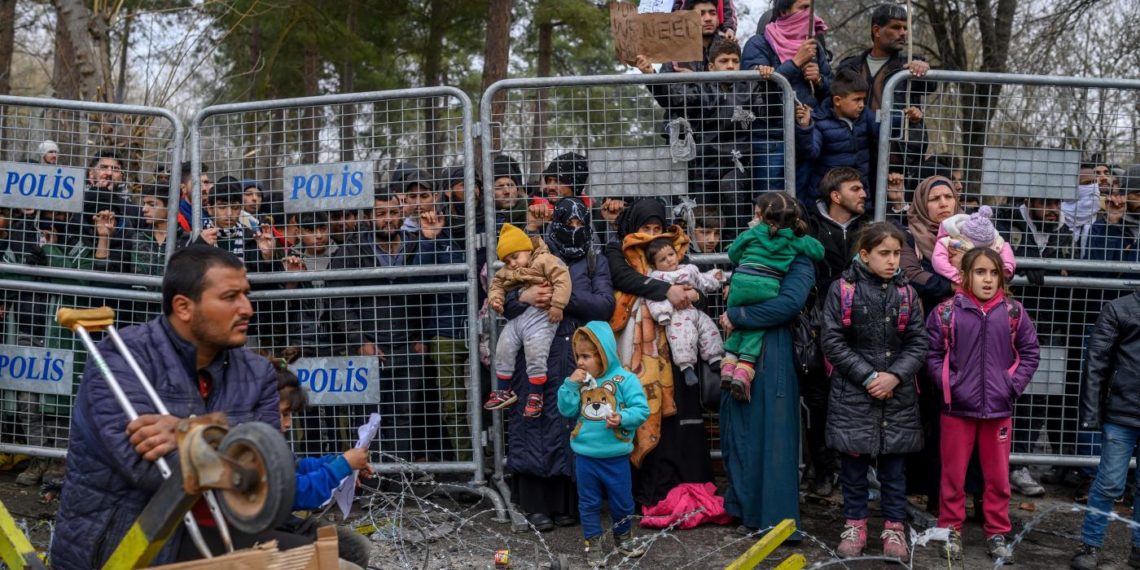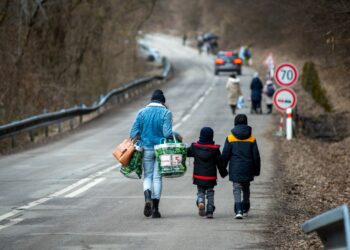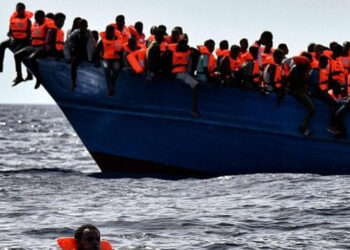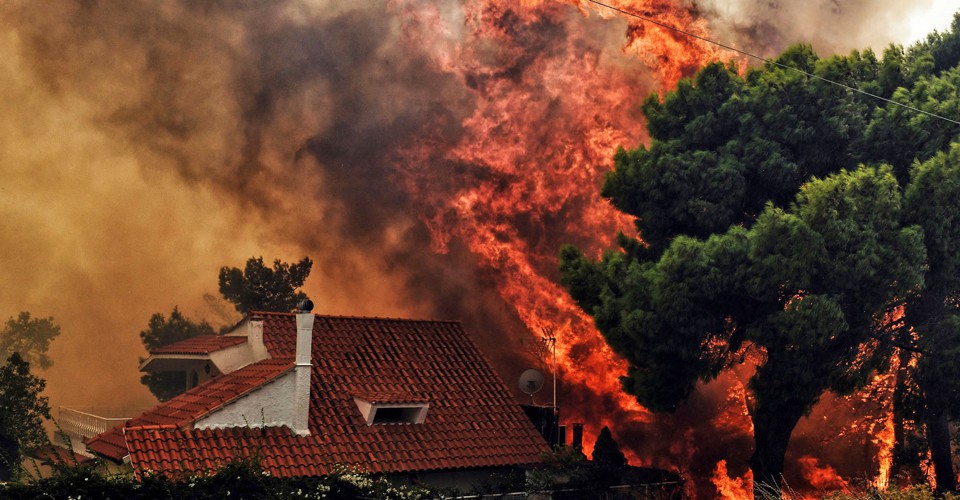In the midst of the COVID-19 pandemic, most governments take preventive measures for the benefit of their citizens. Enforcing social distancing and adding emergency procedures have become legitimate state responses to protect national populations.
Long forgotten, however, are those outside the parameters of national belonging, those lacking “‘the right to have rights” or the right to access the privileges of citizenship.
On February 27, following the conflict between Syrian government forces and Turkish-backed rebels in Syria’s northern province of Idlib, Turkey opened its border to allow Syrian refugees to travel to Europe. This act of political retaliation was aimed at forcing NATO, especially Europe, to back Turkey’s position in the Syrian war.
Within days, hundreds of migrants started marching towards Greece. By February 29, as many as 4,000 people had tried to cross the border. Three days later, the number had jumped to 10,000. Under the newly formed government of the right-wing New Democracy party, whose “law and order” approach led to the eviction of several migrant squats in Athens in the summer of 2019, Greece was less keen on welcoming foreigners with open arms.
Teargas and smoke bombs were fired at a Greek-Turkish border on Saturday as thousands of migrants from Turkey make a rush to enter Greece, an EU member state in recent days https://t.co/kaUSdNdxeF pic.twitter.com/Mxl2AnQOqU
— Reuters (@Reuters) March 7, 2020
Some were tear-gassed while others were beaten after being stripped naked. Abuses by Greek security forces were compounded by Greece’s decision to suspend asylum applications for a month. This decision had little or no legal validity, contravening not only the 1951 U.N. Refugee Convention but also Article 78(3) of the Treaty of the Functioning of the European Union, which states that provisional measures undertaken when states are confronted with a sudden inflow of third-country nationals are to be adopted by the European Council and not by individual states.
By mid-March, with the COVID-19 pandemic in full force, Turkey reduced its movement of people towards Greece and began transporting migrants back to Istanbul. While the turmoil at the Turkey-Greece frontier is at a halt for now, it will most likely return in the near future: after all, the 2015 refugee crisis had never come to a complete stop.
EU-Turkey Deal: Band-Aid Solution
A zero-sum game that blames either Turkey or Greece for last month’s events is derisory. Instead, the situation is under the ethical and legal auspices of the European Union.
In 2015, the number of migrants in need of international protection in the Mediterranean region reached record levels, totaling over 1,015,000, a 546 percent increase over 2014. Since then, the E.U.’s concern has mainly been how to put a lid on the problem.
The 2016 E.U.-Turkey Deal specified that in return for 6 billion euros and the promise of the waiving of visa requirements for Turkish nationals, Turkey would take back all the irregular migrants arriving on the Greek islands by sea.
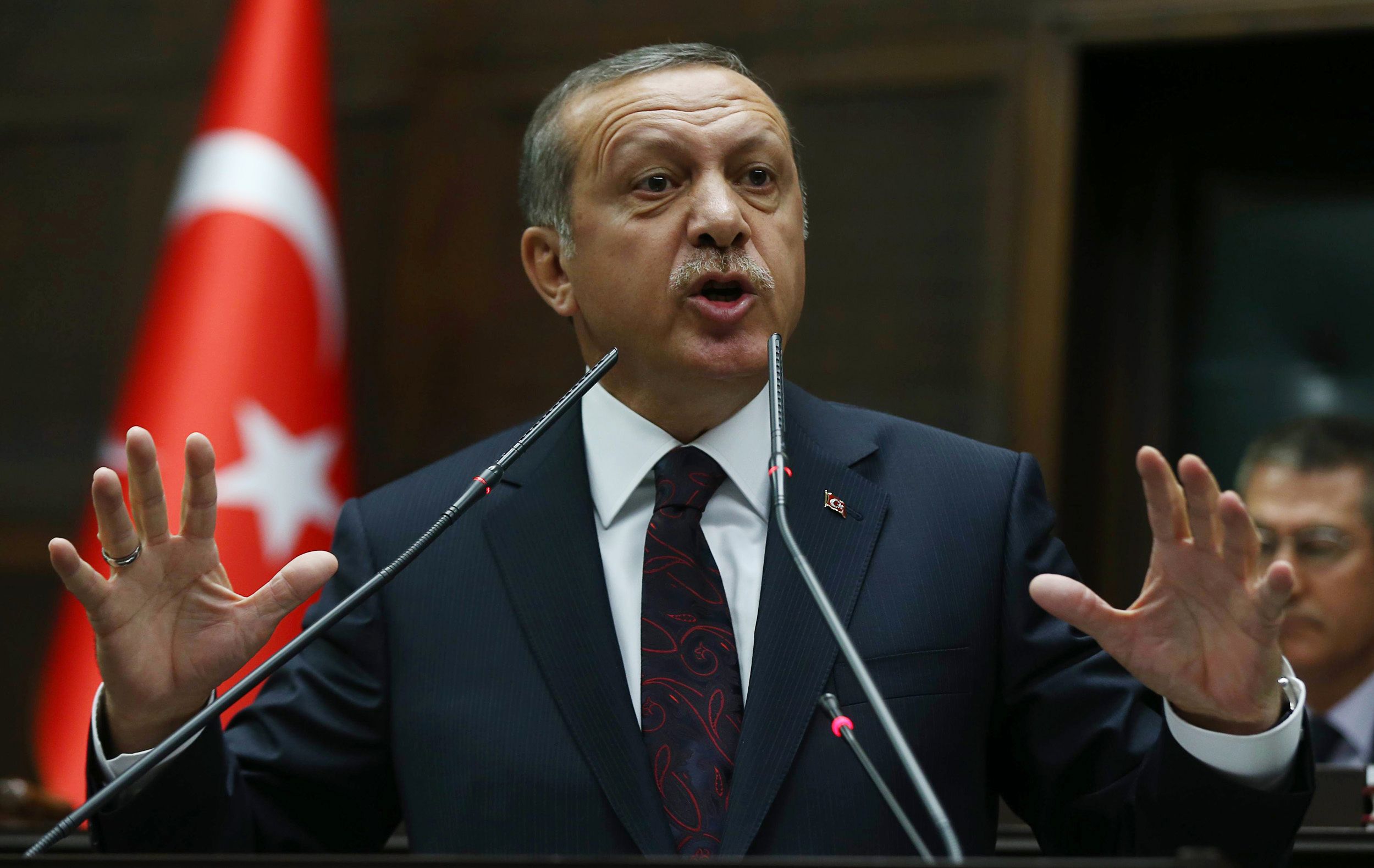
In other words, Brussels paid Turkey to confine migrants to its territory. Apart from the humanitarian issues it raises, from a political and logistical perspective, this decision will be impossible to abide by in the long term. Not only are there over 4 million refugees in Turkey, but given the county’s active involvement in Syria, the E.U.-Turkey statement put far too much power in the hands of a state that could easily manipulate the situation when it is convenient. Any time Turkey is displeased with the E.U., President Recep Tayyip Erdogan could pull the “open the borders” card from his sleeve.
And for anyone following the news, the so-called refugee crisis is hardly a crisis. The volatility at the Turkey-Greece frontier was highly predictable. Erdogan has been consistently threatening to open the borders for years.
Hollowness of the Dublin Agreement
The core of the problem lies less with Erdogan, and more with the highly contested Dublin Agreement. Taken as the backbone of the E.U.’s shared responsibility in asylum matters, the regulation was adopted in 2003 to determine the responsible member state for asylum applications.
The regulation binds asylum claims to the state of entry. If a migrant enters the E.U. through Greece, they need to claim asylum there and cannot continue to Germany or Norway, for example. It is a practical way in which Northern Europe’s wealthy states have been protecting themselves from having to accommodate a surge of migrant entries.
Activists, academics, and policymakers have called the Dublin regulation unfair for years. By making geographical location the main criterion for assigning responsibility for asylum, the agreement not only has increased the pressure on the states located at the E.U.’s external borders and on the asylum claimants entering those states but also has led to bureaucratic abuses, with people sent back to their country of entry even when the Dublin scheme was deferred, as in 2015.
Greece is definitely to blame for how its border forces have treated migrants. But isn’t the E.U. also at fault for leaving Greece to deal with the “crisis” on its own? Wouldn’t it be much easier for the Dublin Treaty to be suspended so people can freely move within the E.U. once they have entered and their asylum claims have been processed?
Brussels is fully aware that migrants do not want to settle on its periphery in countries like Greece, which have suffered steep economic downturns, where unemployment is still high, and where the systems of refugee reception and integration leave much to be desired. This is why the E.U. seems willing to provide cash payments for border operations rather than assist the countries facing higher entries by equitably dispersing asylum claimants across member states.
To do that, however, would mean that the wealthier states of Northern and Western Europe and those with a higher capacity to absorb migrants and well-established systems of migrant integration, such as Sweden, Finland, and France, would receive more migrants than what they see as their “fair” share.
The European Union needs to stop treating migrants as political pawns. These are people who have fled wars, people with children and families, and people who have left their entire lives behind. If this is how they are treated at Europe’s borders, it is perhaps time to ask what European civilization is all about.
Disclaimer: The views and opinions expressed here are those of the author and do not necessarily reflect the editorial position of The Globe Post.

